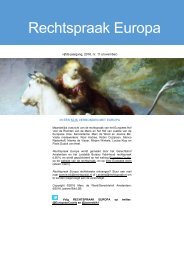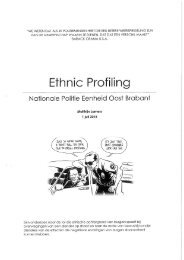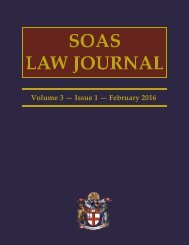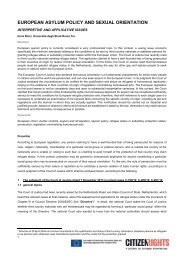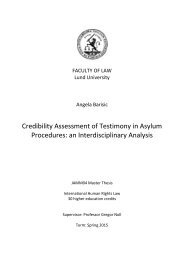AEMI
AEMI-2016-web
AEMI-2016-web
You also want an ePaper? Increase the reach of your titles
YUMPU automatically turns print PDFs into web optimized ePapers that Google loves.
108 <strong>AEMI</strong> JOURNAL 2015<br />
Fig 8 Ludwig Nissen (1855-1924), born in Husum<br />
and emigrated to New York in 1872 where he lived<br />
the «American Dream» par excellance.<br />
Source: Portrait in oil from Richard Creifels, NordseeMuseum<br />
Nissenhaus<br />
from a long illness but to find a wife and<br />
had been engaged already. The reports<br />
of the police-authorities in this matter<br />
were worthless, so he wrote. He could<br />
not prove it but he was sure that they<br />
suggested to the visitors the statements<br />
which were most likely to be successful.<br />
They, so he summed up, always take the<br />
side of the people. Likely he was right.<br />
The Landrat came from outside, but<br />
they were natives and most of them had<br />
relatives overseas, as e.g. the head of the<br />
police in Husum, Hardesvogt Cumme,<br />
whose son Theodor resigned his Prussian<br />
citizenship in 1887 and went to the<br />
USA – 16 days before he became liable<br />
for military service.<br />
But in general the practice was rigid<br />
and sent a negative image across the<br />
Atlantic. This fits well with the picture<br />
of the German empire that after 1900<br />
became increasingly prevalent in the<br />
U. S. as autocratic, militaristic and arbitrary.<br />
On the other side, the United<br />
States were identified more and more<br />
with unlimited possibilities, freedom<br />
and riches. Careers like the one Ludwig<br />
Nissen made, telling of luxury and influence<br />
in abundance, even including<br />
friendship with an American president<br />
promoted this image. After World War<br />
I Nissen organized gifts for the relief of<br />
the people in Germany and Austria as<br />
soon as possible. He had travelled to<br />
Europe and Germany annually since the<br />
late 1880s. But to his birth town Husum<br />
he returned for the first time after nearly<br />
50 years in 1920. Neither had he nor<br />
his brothers, Fritz and Wilhelm, who<br />
did also emigrate to New York, served in<br />
the German army. But no one cared for<br />
that anymore after the war, and surely<br />
no one would ask such questions of a<br />
visiting millionaire from New York. Humanitarian<br />
aid and Care Packets came<br />
again across the Atlantic after the next<br />
war. So the United States remained for<br />
most Germans the land of their dreams.<br />
This positive image was furthered by<br />
rich visitors and many, many letters.<br />
On the other hand, stories that tell<br />
about misfortunes very seldom found<br />
their way back home. As we can read in<br />
the 1847 newspaper article:<br />
I can recall many a person who does not<br />
talk much about how they found it in<br />
America. The one who has been lucky<br />
praises his faith loudly, but the one who<br />
failed remains stock still … because no<br />
one likes to be laughed at. 10<br />
So from the very beginning we have<br />
here a kind of self censorship. Who likes



